Prostatitis is an unpleasant urological disease, the likelihood of which in men increases in direct proportion to their age.
.jpg)
According to medical statistics, almost half of the male population after 50 suffers from some form of prostatitis.
The sooner the correct treatment of prostatitis is diagnosed and prescribed, the more complete and faster the recovery will be.
Definition and causes of prostatitis
Prostatitis is an inflammatory disease of the male prostate, which is a small, highly specific glandular organ located near the urethra and bladder.The main functions of the prostate are to control a man's urination and to produce a secretion that is part of the sperm. Issues of prostatitis and treatment have been addressed in past centuries.
Depending on the causes of the disease, acute prostatitis, chronic non-bacterial prostatitis and chronic infectious prostatitis are distinguished. In accordance with different forms of the disease, different treatment methods will be prescribed for different types of prostatitis.
Acute prostatitis usually occurs in young men and is most often infectious. From the urethra, the infection enters the prostate gland of a man through blood vessels or through the lymphatic system, where an acute inflammatory process develops. If at this time you do not consult a doctor and do not treat the disease, then in a short period of time it will already be chronic, in which there is a violation of the structure, functions of tissues and cells of the prostate, which canlead to irreversible consequences.
Inflammatory processes of the prostate can cause and maintain non-infectious factors for a long time. The main place among them is occupied by chronic spasm of the urethra, which leads to involuntary reflux of urine into the prostate, causing inflammation of the latter.
There are many reasons for this disease, some of them should be mentioned:
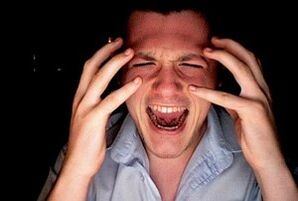
- all types of sexually transmitted infections: ureaplasma, herpes, E. coli, chlamydia, cytomegalovirus, trichomonas, etc. ;
- poor quality sex life: insufficient, artificial prolongation of sexual relations, etc. ;
- congestion in the pelvic organs and a man's prostate;
- overweight, inactive lifestyle;
- stressful situations, various overloads;
- failure of the immune system;
- general hypothermia of the body;
- hormonal imbalance;
- lack of trace elements and essential vitamins in a man's body;
- drinking and smoking etc.
Quick and effective treatment for prostatitis can only be provided by an experienced urologist. Strictly speaking, chronic and acute prostatitis can appear at any age. In older men, chronic inflammation of the prostate gland is more common.
Symptoms in the treatment of prostatitis in men, diagnostic methods
Symptoms of acute and chronic inflammation of the prostate gland in men are manifested somewhat differently. The acute phase of the disease is characterized by local and general symptoms:
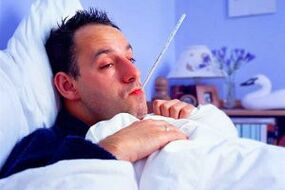
- General illness.
- fatigue.
- High body temperature - up to 40 degrees.
- Chills, fever.
- Weakness.
- Headache.
- Frequent urge to urinate, pain during the process itself.
- A weak flow of urine or its complete absence, tk. the prostate can compress the urethra.
- Acute pain in the perineum of varying intensity, in the inguinal regions, in the lower abdomen - depending on the location of the focus of inflammation in the prostate in relation to the rectum, bladder neck, urethra.
- The mechanism of erection is temporarily disturbed, the general decrease in power.
- There is a complex mental state of a person.
Only after accurately determining the symptoms of acute prostatitis, the urologist will be able to prescribe the appropriate course of treatment for prostatitis.
Chronic prostatitis is not as severe a symptom as the acute form. Most often, it is characterized by the absence of any visible symptoms or has a mild course, mainly of a local nature. This may include:
- Drawing, slight pain in the perineum and adjacent areas.
- The pain can be worsened by intercourse, urination and defecation.
- The frequent desire to go to the toilet, a constant feeling of incomplete emptying of the bladder.
- A certain discomfort during sexual intercourse.
- Decreased sexual function and, as a result, impotence.
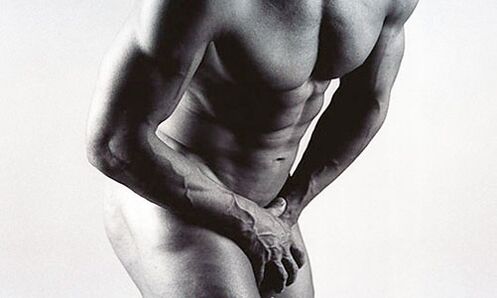
In case of negative factors, a worsening of the disease may occur with all the consequences that follow. With the spread of the inflammatory process in width, it includes other organs adjacent to the prostate: epididymis, seminal vesicles, urethra, etc. , the clinical picture of the disease becomes diverse.
To choose the right course and method of treatment for prostatitis of various etiologies, it is necessary to make a detailed diagnosis of the disease and make an accurate diagnosis. Currently, in the arsenal of doctors are various methods for detecting this disease. These mainly include:
- digital prostate examination;
- prostate secretion analysis;
- bacteriological analysis of urine;
- general blood analysis;
- Ultrasound of pelvic organs and prostate;
- nuclear magnetic tomography;
- urography;
- computed tomography, etc.
Modern diagnostics allows not only to determine the presence of a disease in the male body, but also to determine the cause of its occurrence and its form.
General postulates of prostatitis treatment
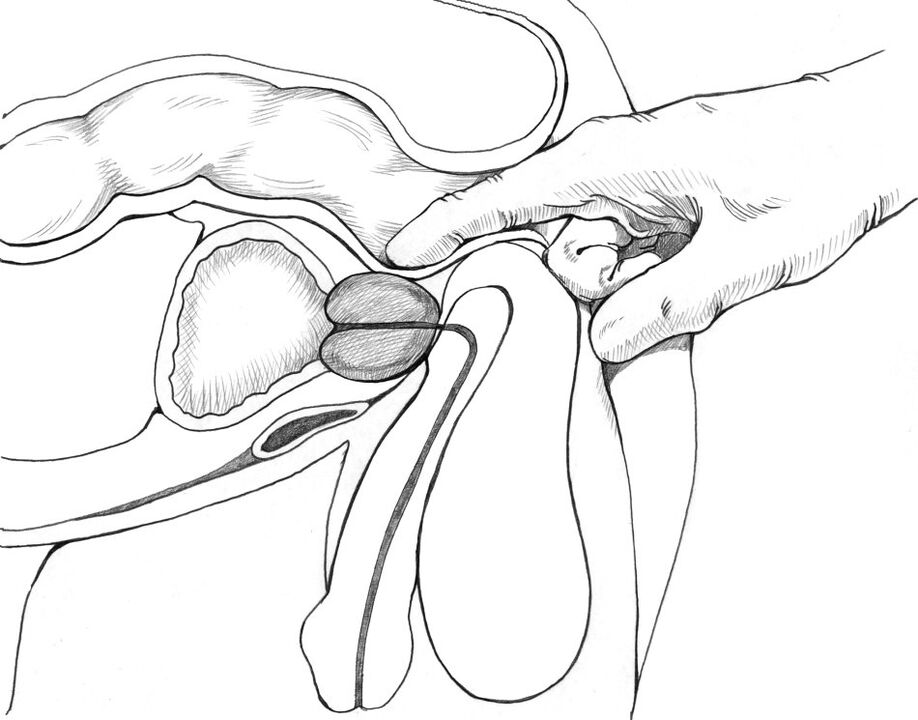
After establishing an accurate diagnosis, the urologist designs a comprehensive individual program for the treatment of the disease for each patient, using modern methods of prostatitis treatment. It should be noted that chronic chronic prostatitis cannot be completely cured, but every effort can be made to prolong the state of remission of the disease for many years. Treatment of acute prostatitis, if all the doctor's recommendations are followed, leads to the complete recovery of the patient.
Comprehensive treatment for different types of prostatitis may include various combinations of the following methods:
- immunocorrective therapy;
- antibiotic therapy;
- hormonal therapy;
- various physiotherapy;
- prostate massage;
- lifestyle changes;
- surgery etc.
Treatment for bacterial prostatitis will differ from non-bacterial prostatitis. In the first case, it is required to take a course on the use of antibiotics from the fluoroquinolone group, and in the second, a course on anti-inflammatory drugs. Treatment for chronic bacterial prostatitis will consist of the use of antibiotic therapy in conjunction with beta-blockers. Along with the treatment of the underlying disease, the use of symptomatic drugs, for example, antipyretics and pain relievers, is often required. Severe forms of prostatitis are treated with hormonal therapy, but under the constant supervision of a doctor, being on a stationary basis.
Only an integrated approach to treatment can lead to a good permanent result. Now, each of these areas of prostatitis treatment should be discussed in more detail and specifically.
Antibacterial and hormonal therapy for prostatitis
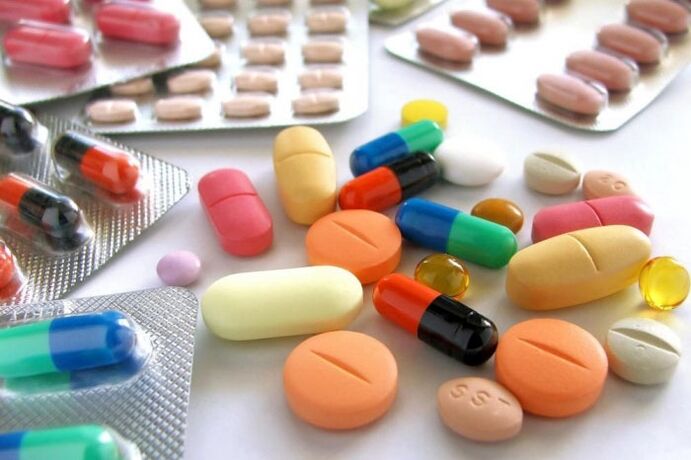
As mentioned above, most often prostatitis has an infectious nature. In this regard, the passage of a course of antibiotic therapy in the treatment of prostatitis is indicated for each patient, with the course of the disease both acute and chronic. Taking antibiotics can eliminate the main cause of inflammation. The following groups of drugs have proven effective in treatment:
- tetracycline;
- macrolides;
- fluoroquinolones.
Alpha-blockers are actively used in the treatment of prostatitis, aimed at relieving spasms of the pelvic organs, due to which the swelling of the prostate is removed and the backflow of secretion in this organ is stopped. As a result, there is a decrease in inflammation in the organ itself. It is important to take medicine for a long time - up to 8 months.
At the same time, to improve the patient's well-being, it is necessary to take antispasmodics and pain relievers. It appears as an aid to the treatment of prostatitis with folk remedies: various soothing herbal preparations, fennel seeds, valerian, etc. Microclysters from the decoction of balm or chamomile are suitable for these purposes.
It is important to undergo antibiotic therapy under the guidance of a specialist, self-medication in this case is unacceptable. It can make the situation worse. Treatment of prostatitis with antibiotics requires the complete exclusion of alcohol.
It is known that the development and function of the prostate depends directly on the hormones: estrogens and androgens. Therefore, the treatment of prostatitis may include the use of hormonal drugs, which will reduce the volume of the prostate gland and reduce the inflammatory process in it.
Phytotherapy and prostate massage
An important and integral part of prostatitis treatment is the use of direct prostate massage. The therapeutic effect of this massage is as follows:
- normalizes prostate muscle tone;
- improves blood supply to the prostate gland;
- increases the action of antibiotics;
- restores the function of channels, etc.

This procedure should be trusted only by a professional doctor in a specialized clinic.
The essence of the procedure in the treatment of prostatitis is as follows: the patient, with his legs shoulder-width apart, bends forward and tries to relax. The specialist, spreading the patient's buttocks with one hand, gently inserts the index finger of the other hand into the rectum and massages the prostate gland for one minute, performing pressure and strokes. An effective massage should consist of discharging a few drops of secretion into the channels. The prostate massage procedure is painful, but for the treatment of prostatitis it is simply irreplaceable. However, prostate massage has some contraindications:
- prostate cancer;
- cysts;
- prostate stones and some others.
Phytotherapy in the treatment of prostatitis in men is an auxiliary method that has a beneficial effect on the final result. The essence of herbal medicine in the treatment of prostatitis is the external and internal use of infusions, juices, decoctions of medicinal plants, for example: calamus, St. John's wort, burdock, etc. This method has no side effects and negative effects. in other organs.
Immunocorrection, physiotherapy and other methods of prostatitis treatment
Restorative therapy and immunocorrection are aimed at restoring the organism as a whole, strengthening the immune system and preventing the occurrence of prostatitis in the future. The doctor prescribes taking the necessary multivitamins, minerals and other substances that increase immunity, especially in chronic diseases.
Physiotherapy methods for the treatment of prostatitis should include actions aimed at activating blood circulation in the pelvic organs to increase the effect of antibiotic therapy. This includes:
- magnetophoresis;
- electrophoresis;
- laser therapy;
- impulse currents etc.
At home, you can replace physiotherapy with warm microclysters from decoctions of medicinal plants.
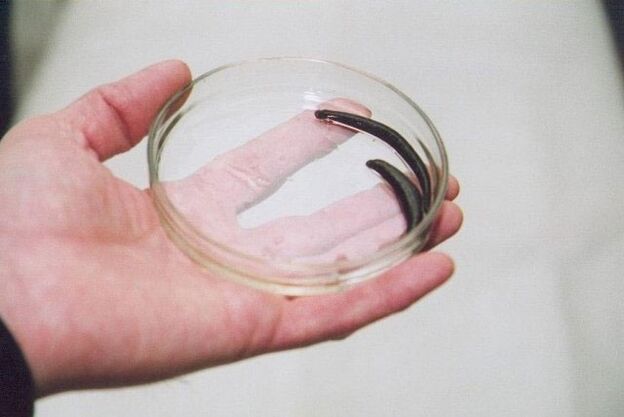
Currently, many alternative methods for prostatitis and treatment are used, which significantly expand the possibilities of modern medicine and reduce recovery time. For example, hirudotherapy eliminates blood stasis in the pelvic organs, improves blood circulation and tissue nutrition. A course of neuromodulatory therapy will effectively stop the patient's pain syndrome.
In the treatment of prostatitis, a course for a healthy lifestyle should be taken without fail. So that the disease does not return after the treatment of the acute form of prostatitis or the remission phase does not end with chronic prostatitis, it is necessary to make important adjustments in your life, to remove all the factors that provoke this unpleasant disease. Proper attention should be paid to regular walks, good sleep, absence of stressful situations, proper nutrition, exclusion of smoking and alcohol, etc.
One of the treatment methods is surgery, which includes:
- radical prostatectomy;
- in the seminal vesicles;
- circumcision;
- narrowing of the urethra;
- in the neck of the bladder, etc.
It should be noted right away that this radical method is used extremely rarely and is not effective. Surgery is prescribed when prostatitis is treated in an old form, with developed complications. Such treatment for prostatitis is used when conservative therapy has not brought a significant result.
After prostatitis treatment, the doctor should prescribe control tests, based on which appropriate conclusions can be drawn.
Treatment with folk methods and prevention of prostatitis
If symptoms of this disease appear, you should consult a doctor and follow all his recommendations. Treatment for various types of prostatitis with folk methods can only serve as an excellent addition to basic medical measures. For many years, enough experience has been accumulated to get rid of this disease, everyone can always choose an acceptable option for themselves. The main conditions for the effective treatment of the disease, especially in its chronic form, is the regular use of high-quality ingredients according to the specified recipe.
You can consider some effective recipes designed to fight prostatitis:
- Propolis (200 g of each sunflower oil and 30 g of propolis are heated in a water bath, then the perineum is lubricated with it for 2 weeks).
- Honey (as part of the juice of various medicinal plants, taken orally 2 times a day, 2 tablespoons).
- Pumpkin seeds (pumpkin seed powder is taken 2 tablespoons before meals 2 times a day).
Prevention after complex treatment of prostatitis can be considered not only proper nutrition, an active lifestyle, but also regular protected sex.
Thus, treatment for prostatitis of various forms is always a whole complex of sequential measures. Only with a clear implementation of all the instructions of a specialist, you can get the desired result and get rid of this unpleasant disease.



















